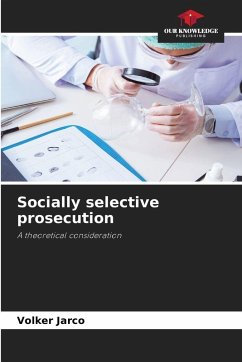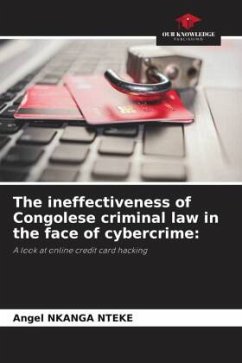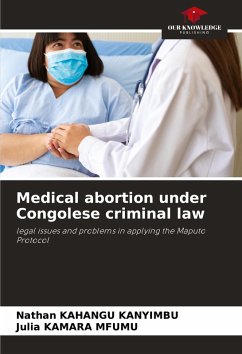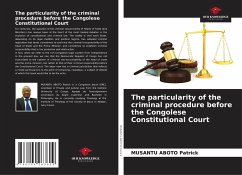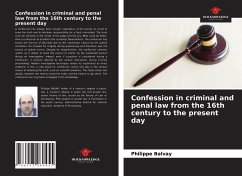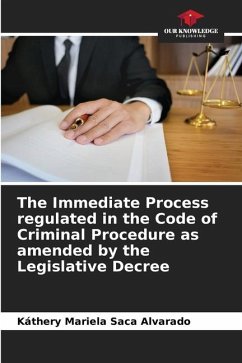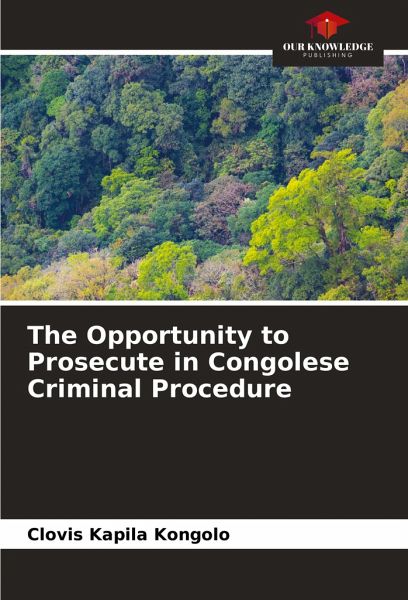
The Opportunity to Prosecute in Congolese Criminal Procedure
Versandkostenfrei!
Versandfertig in 6-10 Tagen
27,99 €
inkl. MwSt.

PAYBACK Punkte
14 °P sammeln!
In Congolese criminal procedure, the principle of discretionary prosecution allows the Public Prosecutor's Office, after an investigation or a pre-trial procedure, to continue the prosecution, i.e. to refer the case to the competent court by means of a request for the setting of a hearing in order to obtain the conviction of the accused, or to proceed with the closure of the case without prosecution, or to propose a compromise fine.The Democratic Republic of the Congo is a State governed by the rule of law. This means that it is a state based on legal texts, a state where the legislator makes ...
In Congolese criminal procedure, the principle of discretionary prosecution allows the Public Prosecutor's Office, after an investigation or a pre-trial procedure, to continue the prosecution, i.e. to refer the case to the competent court by means of a request for the setting of a hearing in order to obtain the conviction of the accused, or to proceed with the closure of the case without prosecution, or to propose a compromise fine.The Democratic Republic of the Congo is a State governed by the rule of law. This means that it is a state based on legal texts, a state where the legislator makes efforts and puts in place legal norms to protect the population against private justice.To carry out this mission of protecting the population against private justice, the state creates judicial institutions for the protection of its members and the proper administration of justice. Beyond the said mission, we witness with regret a deviation of the judicial institutions committed to the protection of the population and its property against private justice.




